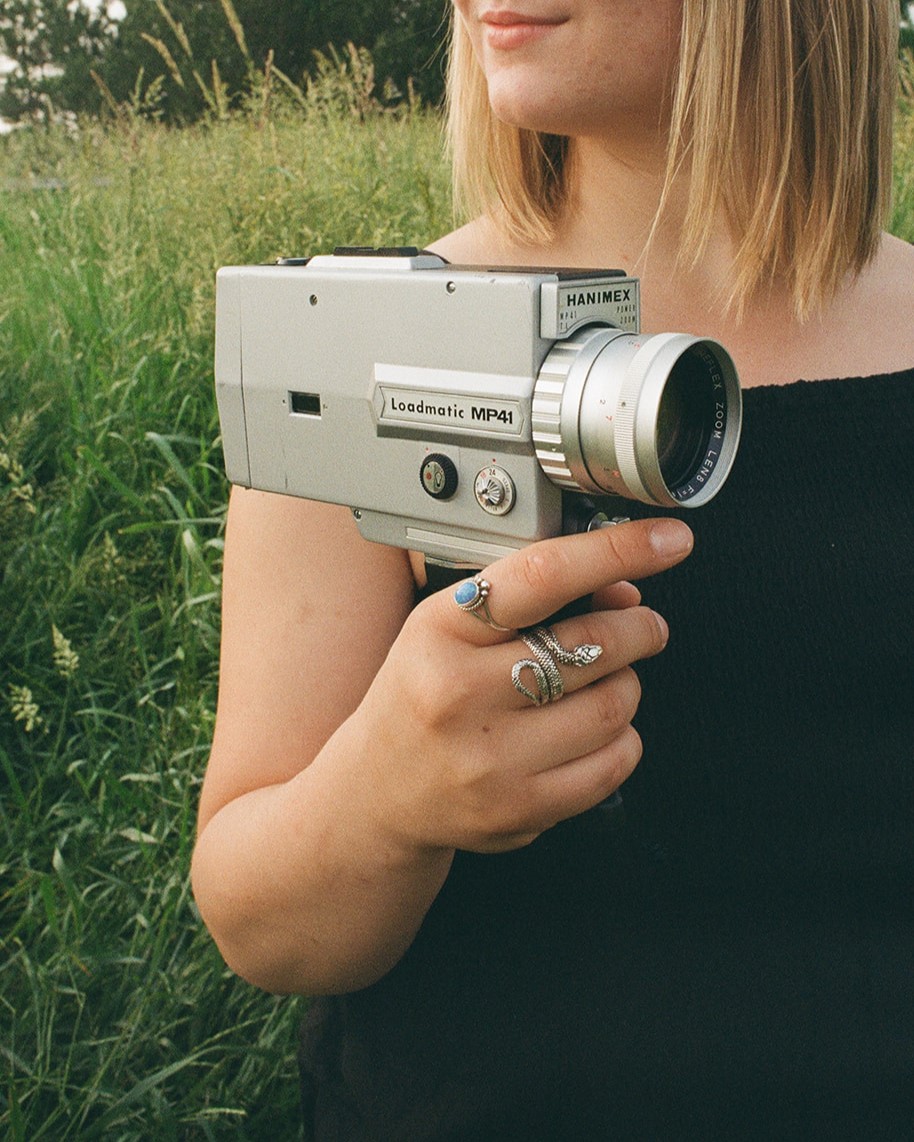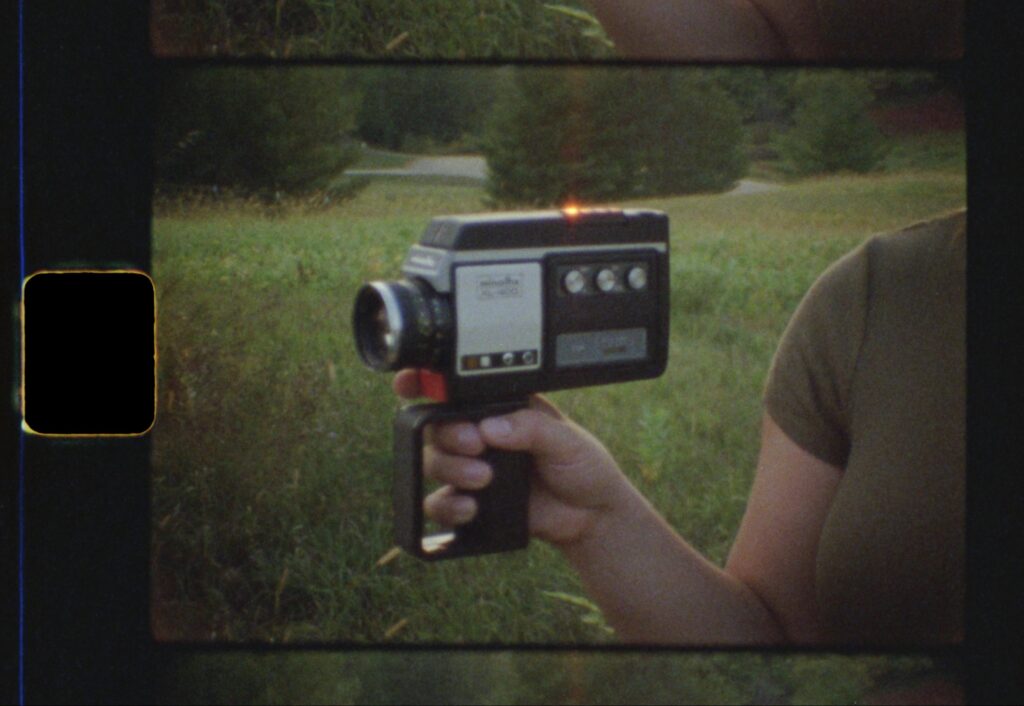
SUPER 8 FILM GUIDE: EVERYTHING YOU NEED TO KNOW
Super 8 film is a motion picture film format that was introduced by Eastman Kodak in 1965. The innovative format featured easy-to-load cartridges, revolutionizing home moviemaking. It eliminated the cumbersome reel-to-reel loading process and made film accessible to a broader audience.
Super 8 is a real film that captures 24 miniature photographs per second, creating a traditionally silent film. Super 8 is known for its organic, nostalgic, romantic, intimate feel. The look is celebrated for its grainy texture, soft color palette, and distinctive light leaks.
The Super 8 aesthetic is known for its grainy textures, soft dreamy colors, and unexpected light leaks. Super 8 has a notable, vintage sprocket hole on the side of the image—something used to advance the film and present in the final scan.
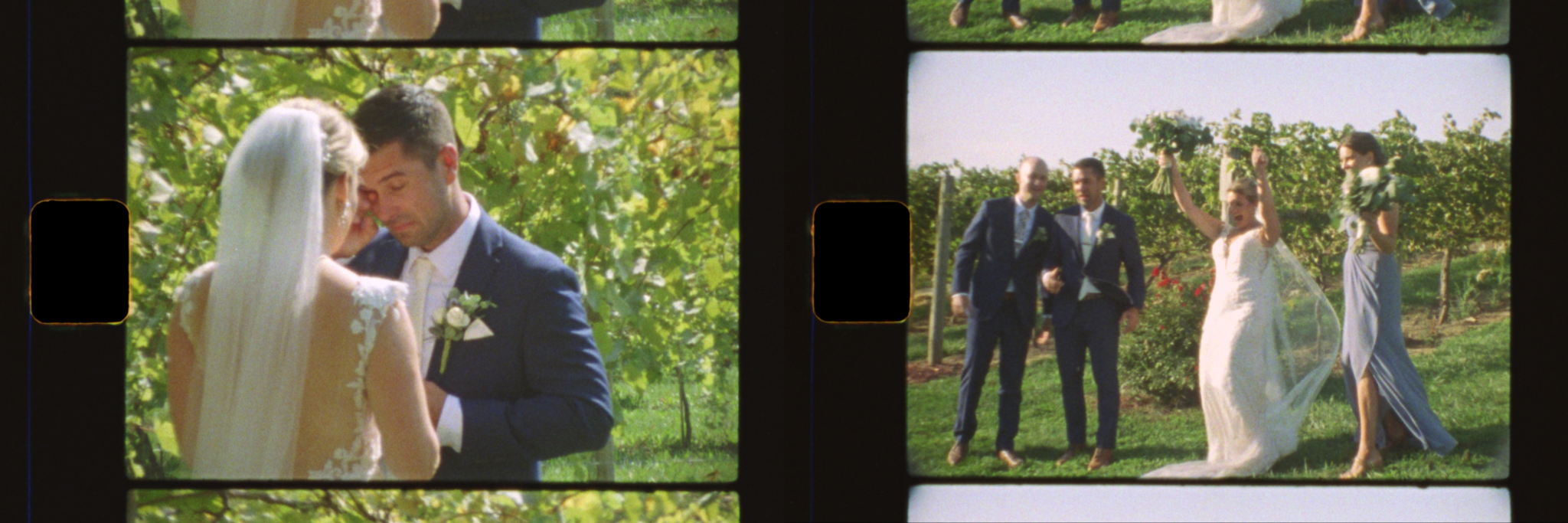
Super 8 stands in contrast to the crispness of modern digital video, connecting us to the past while recording the present. With its grainy texture, imperfections, and softness, the feeling you get from film cannot be replicated by modern digital cameras. (Even though lots try to imitate it with their super 8 overlays and filters.) The warm, nostalgic quality of Super 8 film adds a unique and historical feeling to your precious memories. It is an emotionally rich medium that celebrates imperfections and authenticity. It captures more than just moments; it captures feelings.
Super 8 film comes in a light-protected cartridge that holds a 50-foot strip of film, a design that revolutionized how film cameras are loaded. Inside the camera, the film is mechanically run at speeds of either 18 or 24 frames per second (fps). Essentially, this means that for every second, the camera captures 18-24 miniature film photographs, creating a moving image.
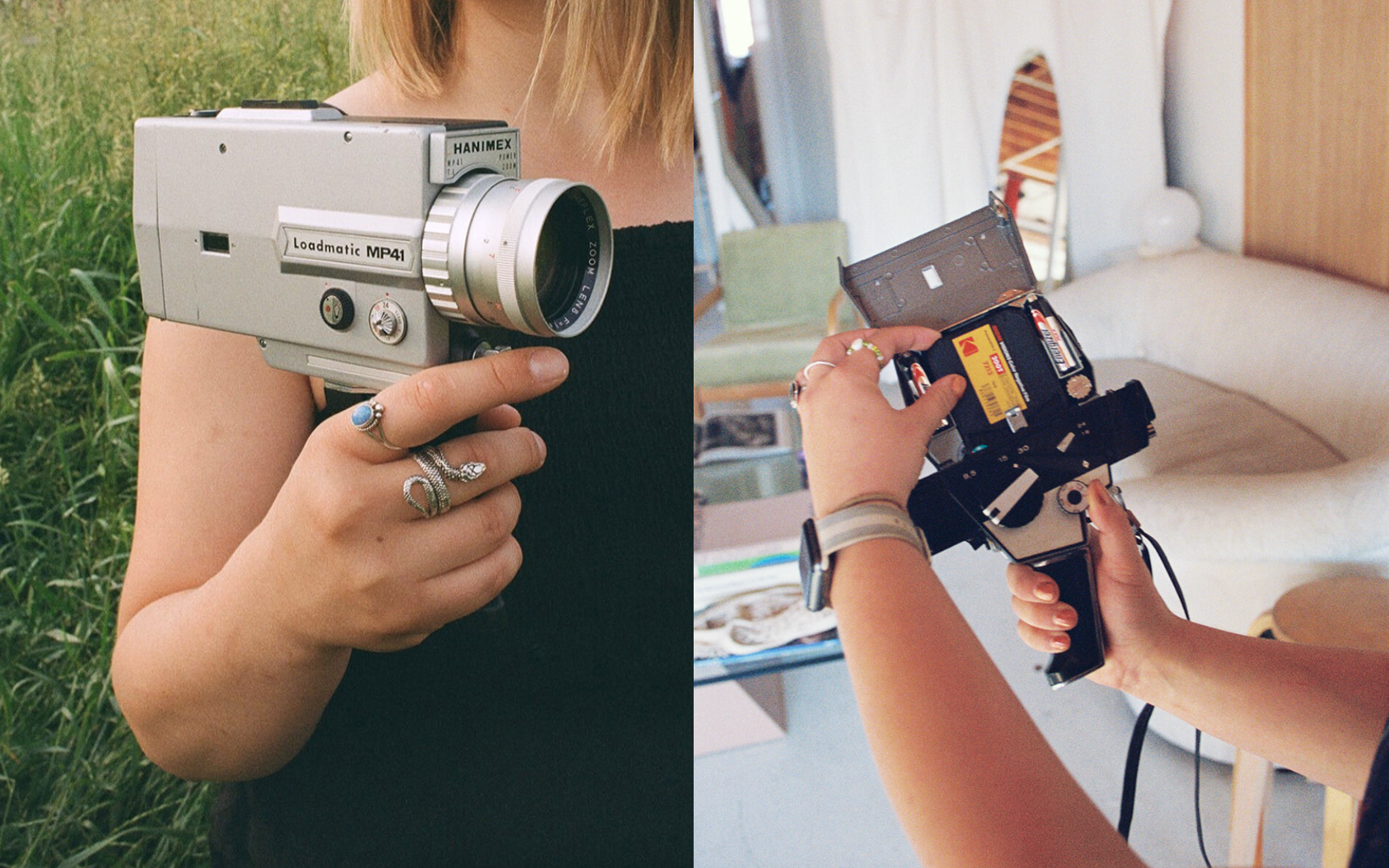
Yes, Super 8 film is still being produced. In fact, Kodak has launched a new Super 8 camera in 2024, marking the latest development in Super 8 technology in over 30 years. This move by Kodak highlights the ongoing resurgence of Super 8 film, indicating that this beloved medium is here to stay for the foreseeable future.
On each roll of Super 8 film, you get approximately 3 minutes of footage at the modern standard of 24 frames per second. This translates to capturing 24 tiny film photographs every second. With Super 8, each second is precious, demanding thoughtfulness and intention with every shot.
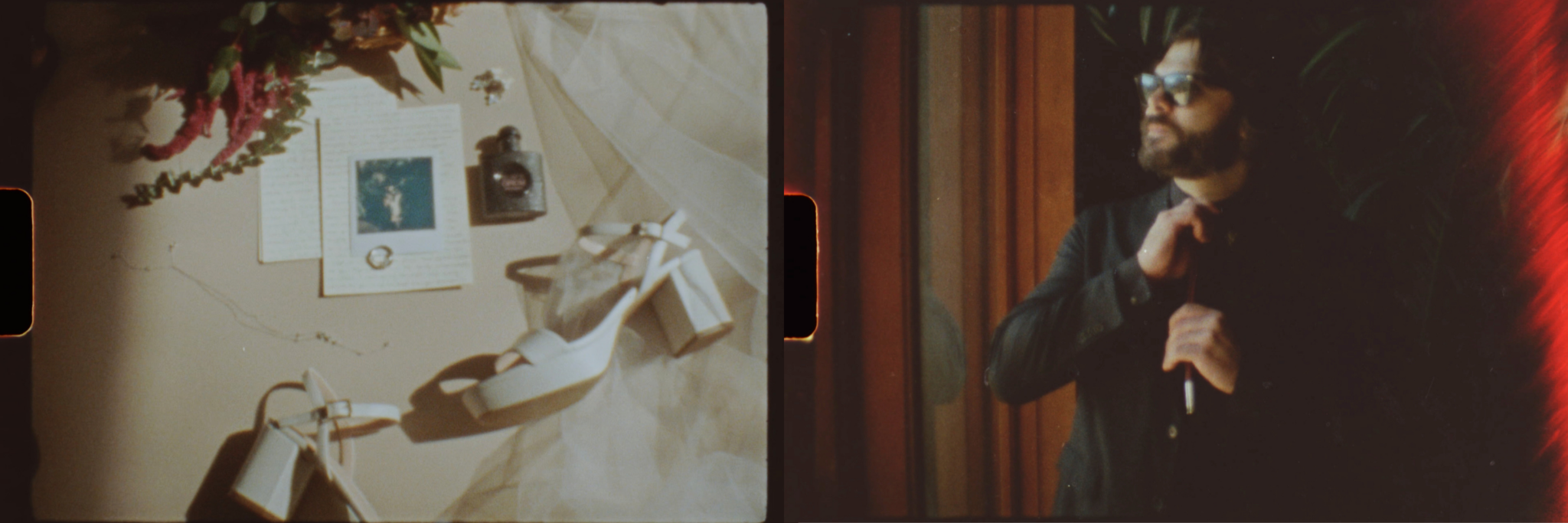
Super 8 film is a silent film capturing 24 film photographs a second on a reel. Technically sound-capable Super 8 film was developed in the 1970s; however, it is no longer made. In my super 8 wedding films, I bridge this gap by using modern audio equipment. I capture audio from key moments like the first look, private vows, ceremony, and reception highlights.
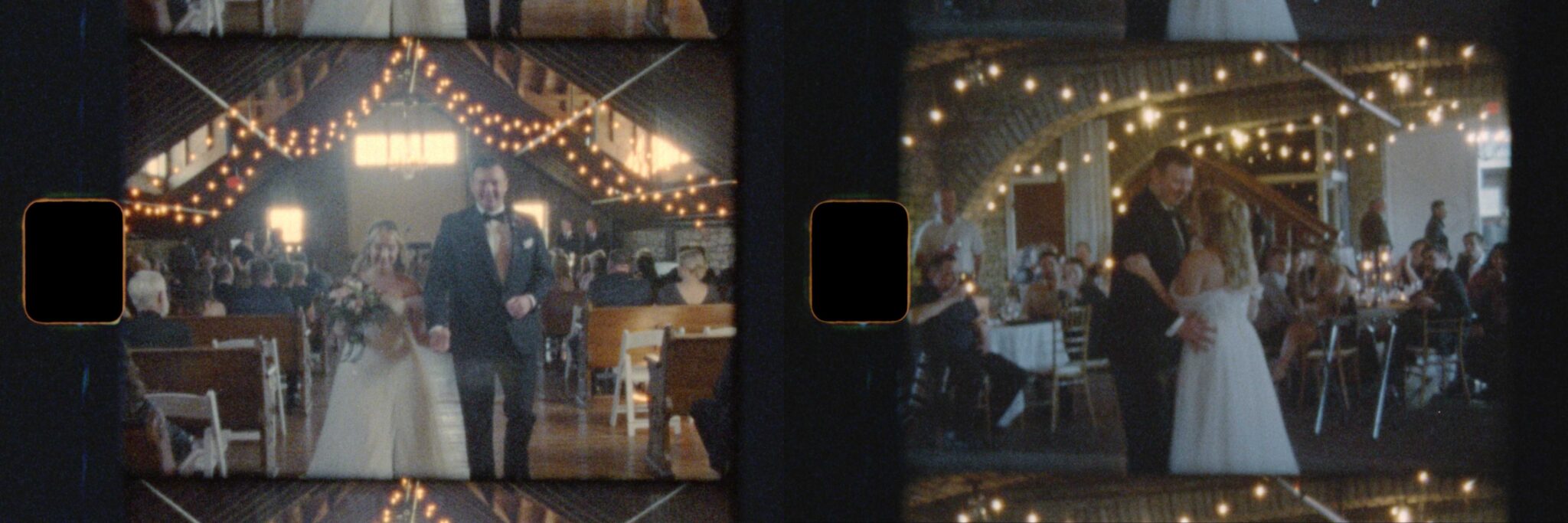
Shooting with Super 8 film at night or in low light does present its challenges, as film inherently needs light to capture clear images. While ambient lighting can still produce beautiful shots, the clarity and crispness of the footage may require video lights, similar to what’s used by digital wedding videographers. If you’re having me along to document your wedding or elopement on super 8, I will bring the appropriate equipment for dusk and low light.
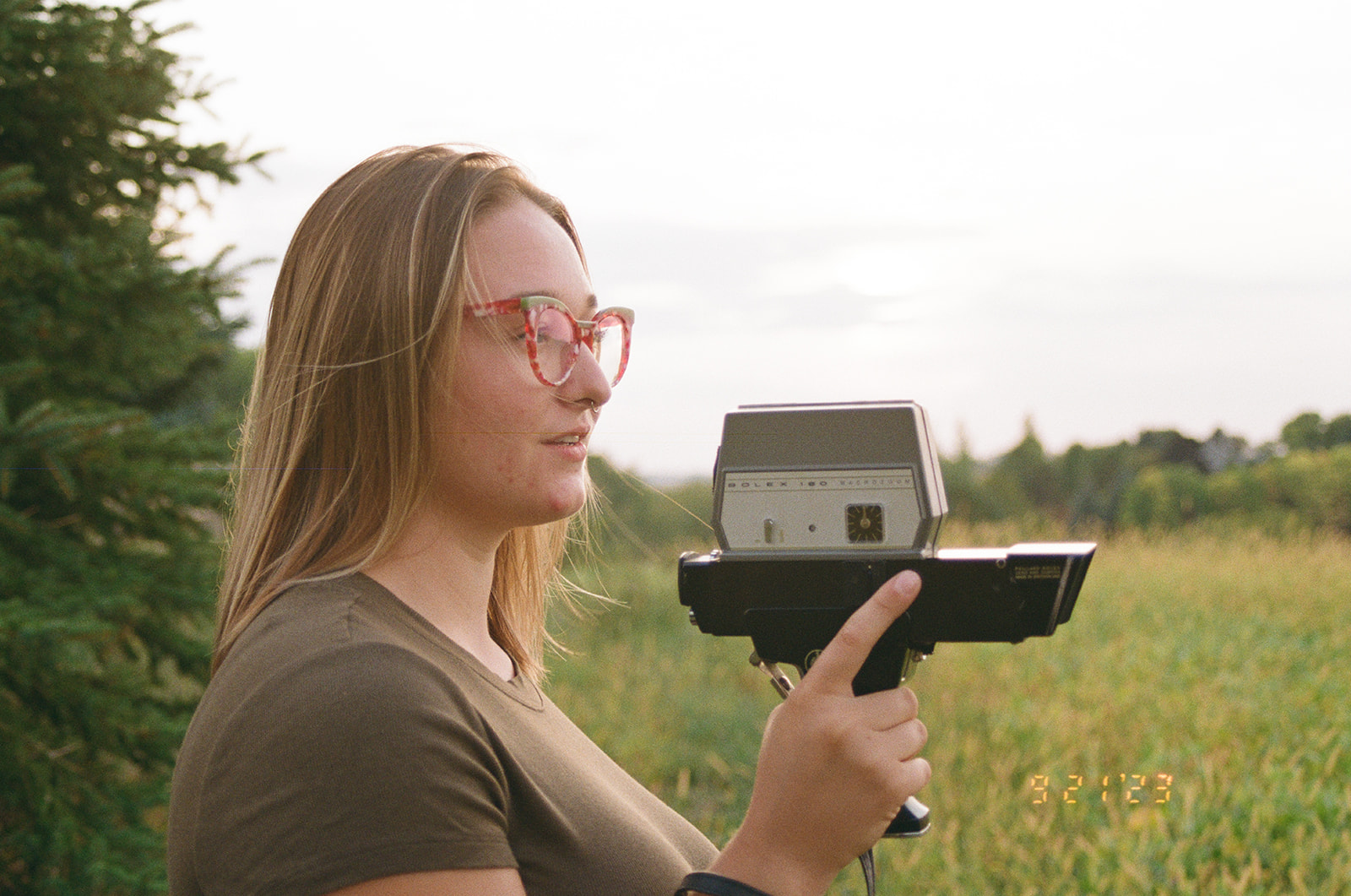
I shoot on a variety of cameras including the Canon 814 and the Bolex 160 Macro Zoom Super 8 camera from 1972. These cameras have durable metal construction and sharp opticals. When it’s rolling, you’ll hear that it makes a whirring mechanical noise. For a sneak peek of this classic sound, just watch the beginning of any of my films.
It’s a bridge to the past, preserving cherished family moments in a format that’s as heartfelt as it is historical. Many people’s grandparents and even parents captured their most cherished memories on Super 8, from weddings and birthday parties to casual family gatherings and holiday celebrations. The warm, nostalgic quality of Super 8 film adds a unique charm to these memories, making them all the more precious and significant in maintaining a family’s legacy.
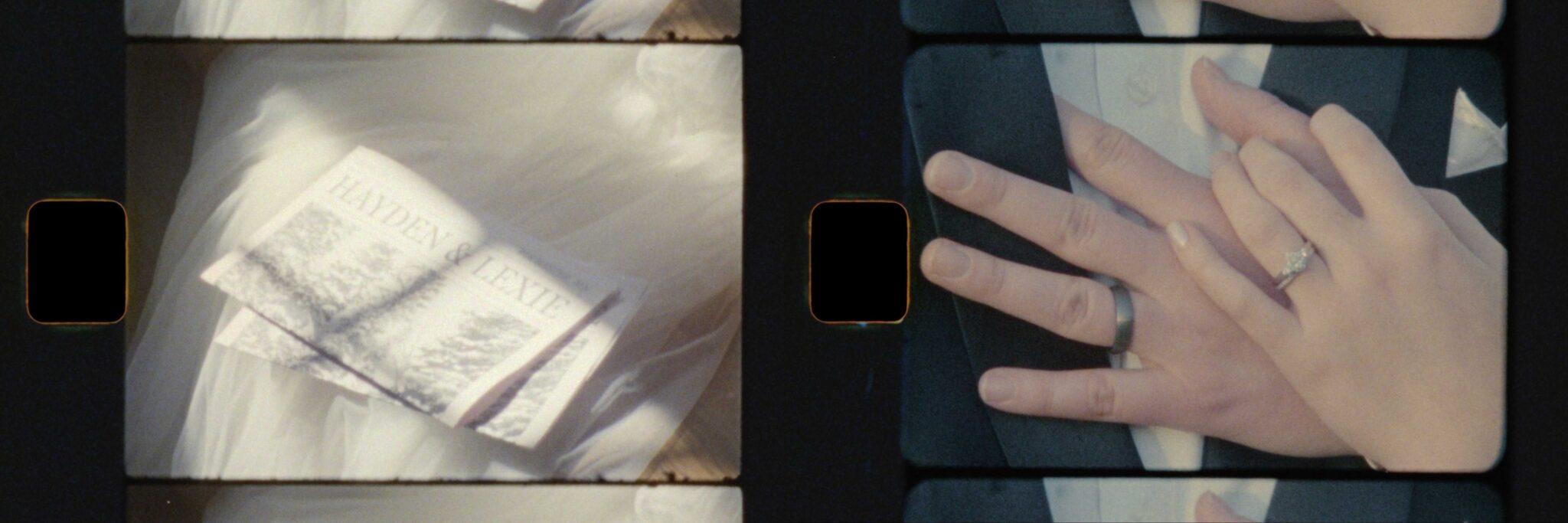
Just like any other film type, Super 8 must be developed and scanned at a lab. After processing, the film becomes a light-safe negative. Super 8 is a motion picture film with each roll 50 feet in length, so it’s film processing is a lot more intricate than other stills film like 35mm/120.
Long story short, Yes. Super 8 film can be expensive. The costs add up due to the specialized nature of motion picture film labs, which are scarce in the United States. When you factor in the price of the film, shipping, plus the cost of developing and high resolution scanning, you’re looking at approximately $300 per roll.
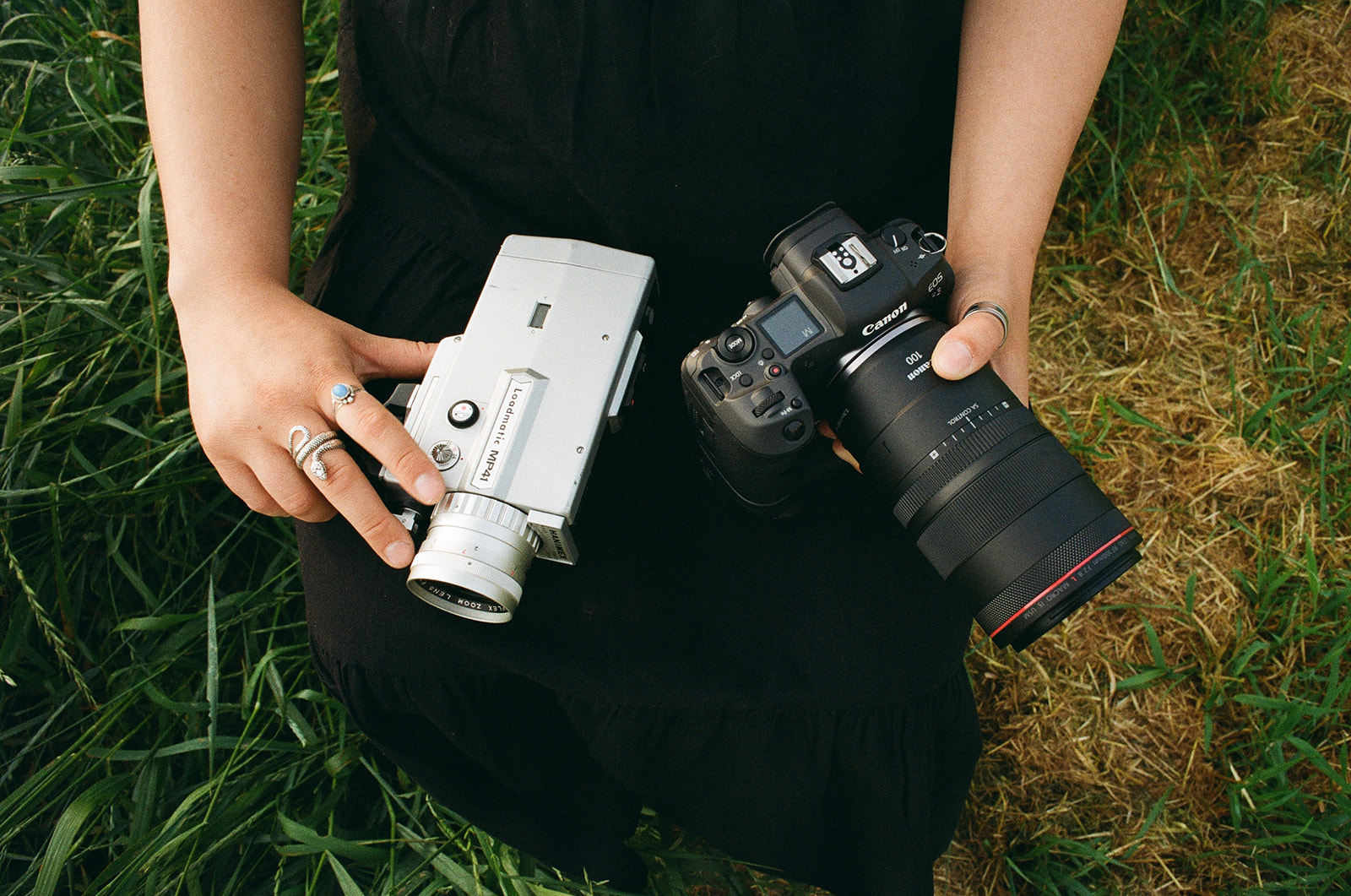
Yes you can travel with Super 8 film, but always ask for a hand check and never x-ray film. As a Super 8 wedding videographer, I understand these precautions well and consistently travel with an assortment of film, always without any issues. Whether your special day is in Minnesota or at a far-off destination, I’ve got my super 8 camera and passport at the ready.
Super 8 requires a deep understanding and expertise of film. Every shot is intentional, carefully composed, metered, and documented. There can be risks with film so the devotion goes beyond the camera. Experience in safeguarding film through careful processing, digital scanning, and thoughtful editing. Your film will make your memories rich in character and also compatible with a modern viewing experience.
This format counters the fleeting nature of today’s digital content, providing a lasting, meaningful way to capture life’s important moments. It’s the perfect antidote to the “Instagram perfect” world, offering a visually stunning and emotionally rich alternative that celebrates imperfections and authenticity, connecting us to the past while recording the present.
Their films should be smooth and controlled, with minimal shakiness and deliberate pacing. You’ll want to avoid any rush that distracts from the nostalgic feel of the film. You want a videographer who balances the vintage nature of Super 8 with the precision of modern filmmaking. You should check to see if they provide film stills (images) and any raw super 8 footage. Interested in seeing what these film stills look like? Browse my Super 8 Stills on Pinterest.
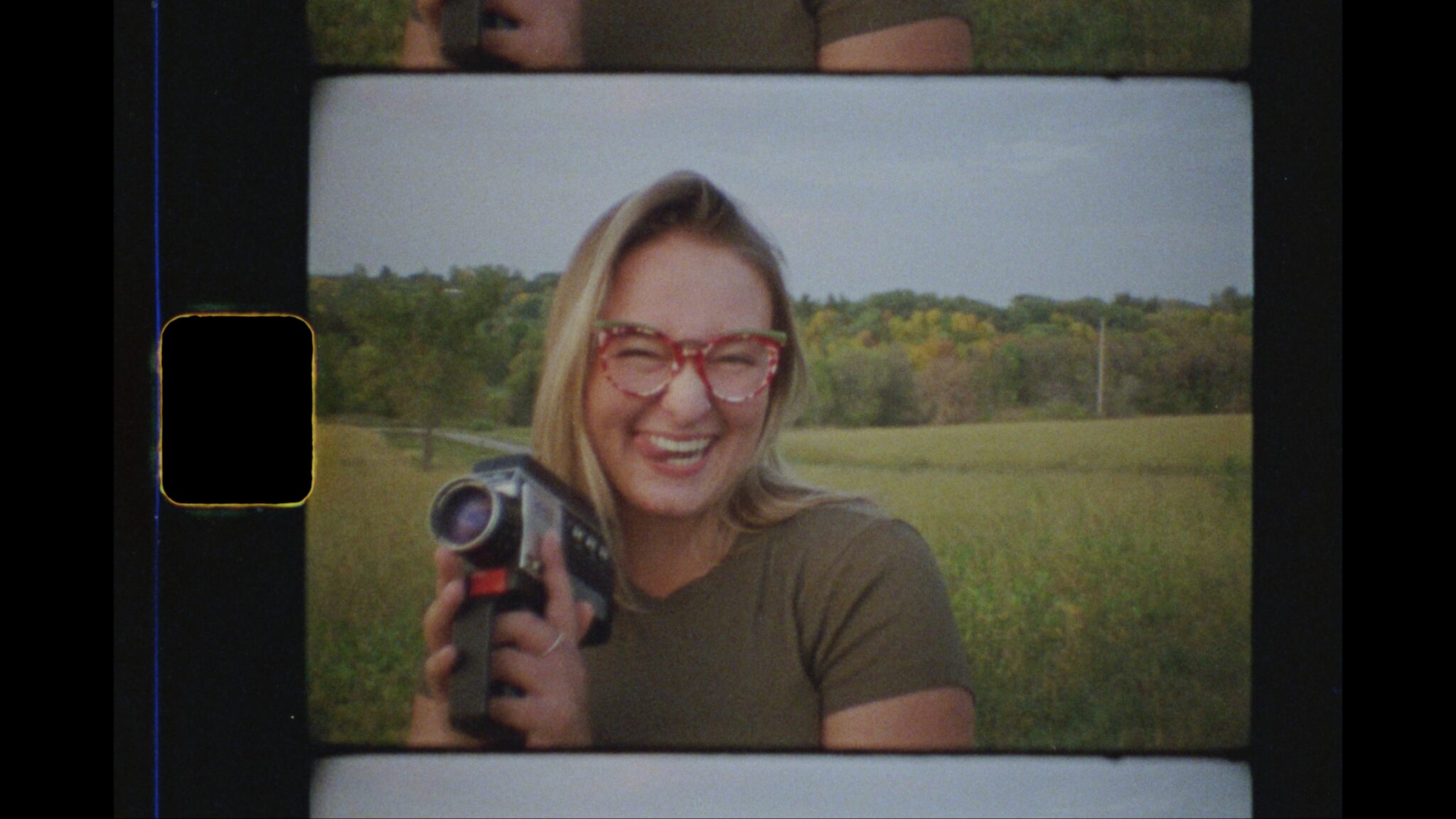
Yep that’s right! I’m based in Minneapolis, Minnesota, and I specialize in creating vintage Super 8 wedding videos. I combine both Super 8 cameras and old-school digital camcorders to document your day. You’ll receive a nostalgic, home movie-style wedding film ranging anywhere from 6-20 minutes. Plus, you’ll receive stills from your film, so you can relive your special day both in motion and in timeless photos. You also receive all your Super 8 footage digitally, color-corrected, uncut, and silent, ensuring you receive all of the authentic moments from your day. Stalk my work and go watch some of my films!
I’m here to create a home-movie vintage film that captures the authenticity of your memories. Through a candid, documentary approach, I immerse myself and capture your story as it naturally unfolds. You’ll experience the analog charm of Super 8 paired with a dad cam digital camcorder for a 6-14 minute home movie film. If that sounds interesting to you, then reach out to me and slide into my inbox! I can’t wait to hop on a call and hear about the vision you have for your wedding day.
ROLL THE FILM REEL
Looking For A Documentary Super 8 Film Wedding Videographer?
Well thanks for scrolling all the way to the bottom! My name is Brianna Kirk, and I’m a hybrid film photographer and super 8 videographer based out of Minneapolis, Minnesota, available for destination travel.
I love capturing your wedding day with the nostalgic, authentic feel of Super 8 film—documenting real, unscripted moments with a timeless, home movie approach. If you want your memories preserved in a beautifully candid and vintage style, contact me today.
